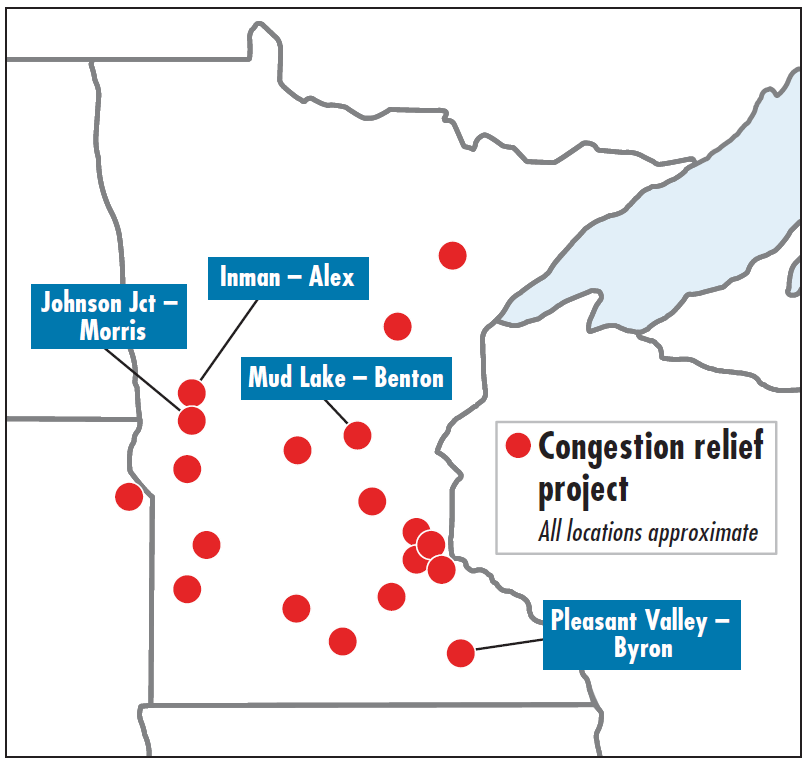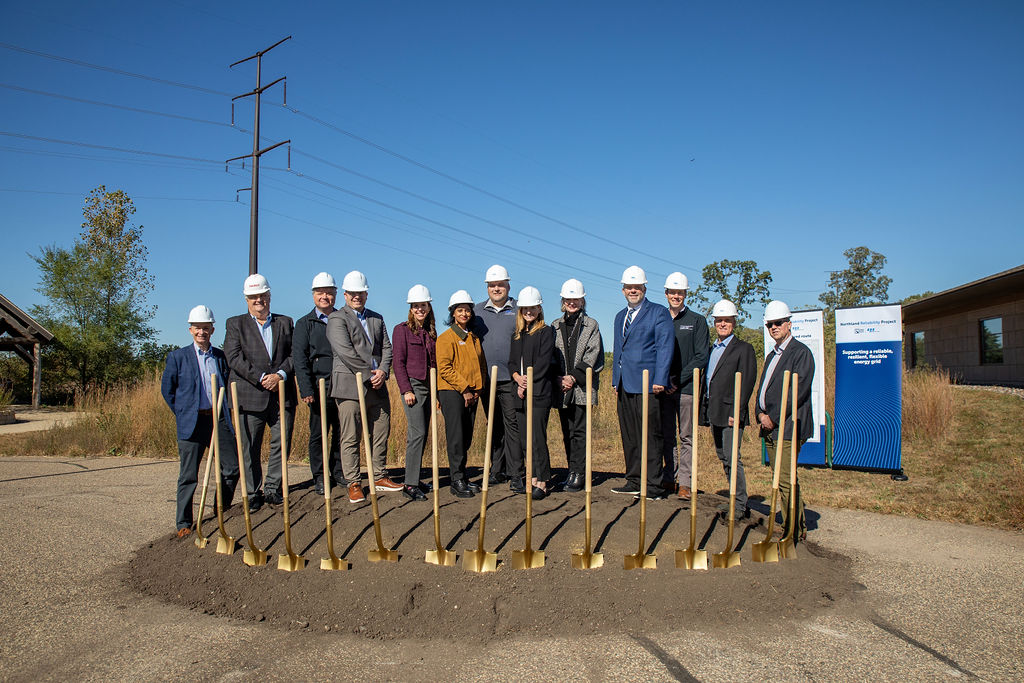Grid North Partners utilities, including Great River Energy, recently announced 19 transmission upgrade projects primarily in Minnesota that will reduce congestion on the system. The projects can be implemented over the next three years and will be paid for by the individual utilities.
“Market congestion is an issue right now and big transmission projects take 8-10 years to build,” said Jared Alholinna, Great River Energy’s manager of regional transmission planning. “The goal of this effort was to identify what can be done to mitigate congestion within the next few years.”
Transmission congestion occurs when there is a limitation on the transmission system that prevents the most economic generation, such as low-cost renewable energy, from serving electricity to an area.
The effort started with the Grid North Partners utilities collectively analyzing historical market congestion from the past two years and considering future congestion projections for Minnesota and the surrounding region. The purpose of the study was to identify the congestion that could be mitigated with relatively low-cost and short time frame upgrades.
The study identified facilities that had caused congestion in the market over the past few years and were expected to cause future market congestion if not mitigated. There were 19 solutions identified that could be built over the next three years, focusing on replacing old equipment with newer technology allowing them to operate more efficiently. Great River Energy has ownership in four of the projects:
- Johnson Junction-Morris 115-kilovolt (kV): This line was recently rebuilt, but could still cause market congestion, especially when wind output in southwest Minnesota is high. The project upgrade is to install dynamic line rating sensors to gain higher capacity compared to the static seasonal ratings. The sensors have already been installed and are presently providing data.
- Inman-Elmo-Parkers Prairie-Miltona-Alexandria 115-kV: The congestion on this line contributes to high market prices in Lake Region Electric Cooperative’s service area and other parts of northern Minnesota. The line’s capacity is limited by clearances due to 10 structures. The upgrade project is to replace those structures to increase the rating. The project is expected to be complete by spring 2024.
- Mud Lake-Benton 230-kV: Jumpers and wave traps at the Benton Substation limit the line from using the full capacity of the line conductor. The project is to replace the wave trap and jumpers with higher rated equipment and also use ambient adjusted ratings to gain higher conductor capacity compared to the static seasonal ratings. The expected in-service date is fall 2024.
- Pleasant Valley-Byron 161-kV: Market congestion on this line contributes to curtailment of wind generation in southern Minnesota. Great River Energy owns the breaker and wave traps at Pleasant Valley Station, while Xcel Energy and Southern Minnesota Municipal Power Agency own the line and other equipment. The project is to replace the breaker and wave traps so they are not the most limiting element on the line. The expected in-service date is fall 2025.
Great River Energy is part of two additional projects that will add a second circuit to the existing CapX2020 line between Brookings, South Dakota, and Lyon County in western Minnesota, and between Helena and Hampton just south of the Twin Cities. The towers were constructed capable for two circuits in 2015, but only one was installed. These projects add the second circuit on the existing towers.
Learn more about the Grid North Partners congestion relief efforts in this fact sheet.

 " data-object-fit="cover">
" data-object-fit="cover">